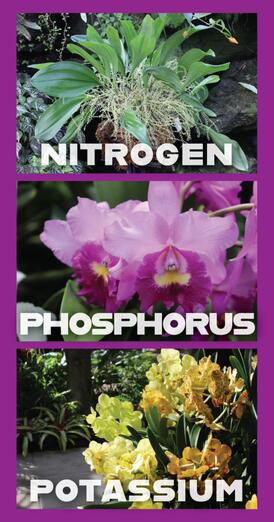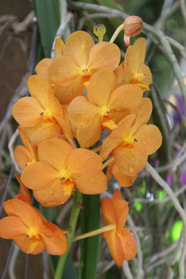 Orchids Deserve Treats, Too Although the growing season is winding down as we head into fall, that doesn’t mean you should stop feeding your orchids. Routine, year-round feeding promotes healthy growth, bigger blooms and happier plants. So how should you “treat” your orchids? There are several ways to go about feeding your plants and selecting one method over another really depends on how much time you have to spend with your orchids. 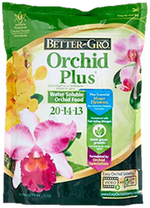 Weakly Weekly The weakly, weekly method is probably the most common method for gardeners who have multiple plants and time to fertilize. This approach is typically performed with a water soluble or liquid plant food whereby you reduce the concentration of the fertilizer by diluting it with additional water. With our Better-Gro® Orchid Plus plant food, we recommend one teaspoon per gallon of water when feeding with the weakly, weekly method. First and Third Friday Feedings Other growers prefer the less time-consuming method for providing plant food by picking a particular day to fertilize. One way to remember this may be to always feed on the first and third Friday of the month. Place a reminder on your calendar and follow the manufacturer’s instructions for mixing your plant food. When usingBetter-Gro® Orchid Plus®, twice monthly, we recommend mixing a half of a tablespoon of plant food per gallon of water. 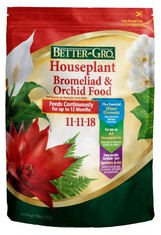 Continuous Release If you are always on the go and have limited time, don’t worry. You don’t have to deprive your plants. We suggest a continuous release formula like our Better-Gro® Houseplant, Bromeliad & Orchid Food because it that will feed your plants with one application for up to 12 months. Specially-formulated pellets release nutrients over time, so you don’t have to worry about over- or under-feeding your plants. 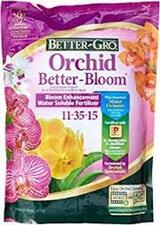 Extra Treat for You and Your Plants If you really want to treat your plants and treat yourself to bigger, better blooms, try including Better-Gro® Orchid Better-Bloom® into your feeding routine. This plant food formula includes a high content phosphorous that serves as a powerful blooming agent. Your plants will produce more blooms, deeper colors and larger blossoms. We recommend giving your plants Better-Bloom every fourth watering. 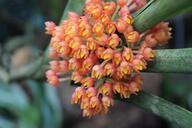 Don’t forget your orchids this Halloween. They like “treats” too! Boo-Yah! Happy Blooming and Happy Halloween from Better-Gro! If buying plant food has you saying IDK (short for I Don’t Know) about NPK, don’t worry! You don’t need to be a chemist, biologist or professional grower. We’ve got the answers to help you select the right plant food. So, What is NPK? NPK is an abbreviation for Nitrogen (N), Phosphorus (P) and Potassium (K). Remember the abbreviations on the Periodic Table from high school chemistry class? These nutrients when applied at the right time in the correct amount can help you grow healthier, happier plants. Behind the Numbers Not all fertilizers say “NPK” on the packaging, but you will consistently find three numbers that correspond to the percentage of Nitrogen, Phosphorus and Potassium content in the fertilizer. For example, you may see 10-10-10 on the packaging label which indicates the plant food contains 10% of each of these primary nutrients.
|
Resources
|
Company |
|

